Getting solar panels installed and transforming your rooftop into your own personal power station can seem like a daunting journey at first. Having a good idea of what you are looking for in regards to your energy needs will streamline the process of installing a system.
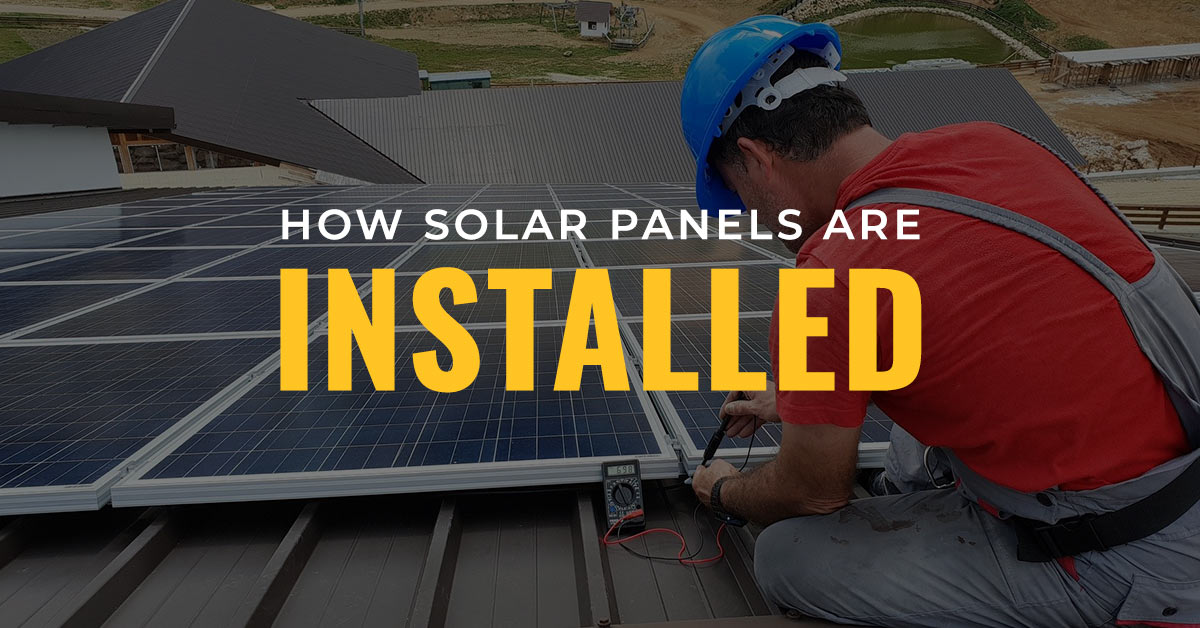
The route you choose will determine your overall solar panel cost, so let’s go over a few of the options step-by-step in the solar installation process so you can explore options that might work best for you.
Note: It’s a good idea to hire a professional solar installer (like Harmon Solar) for your system as DIY methods can be dangerous and costly if installed improperly.
There are 3 primary options for a solar power system: on-grid, on-grid with backup batteries, and off-grid.
This type of solar energy system is very popular these days. The panels on your roof will take in power that is connected to the power grid of your local electric company. On sunny days, your system will store excess energy that it generates and will utilize it on cloudy days when the panels are not producing enough. This process is called net metering and is one of the many benefits of an on-grid system.
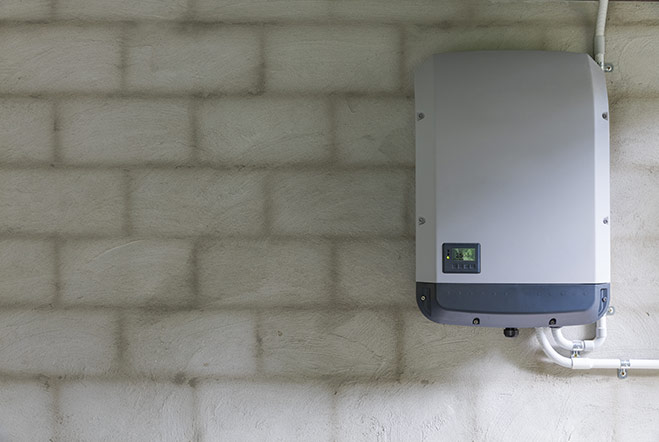
Solar power inverter attached to the grid and mounted on brick wall inside garage.
This is a very common and practical option for residences as power is guaranteed even when the weather isn’t cooperating. The solar companies negotiate with the local electric companies to make this process possible. This type of system will save you a lot of money on your monthly energy bills. Remember though, if the grid goes down in the local area, so does your power!
Need a little bit more assurance that the lights are going to stay on? This solar electric system works the same way as the regular on-grid system, with added security and comfort of the knowledge that you’ll still have power stored in your battery backups in case of a grid outage.
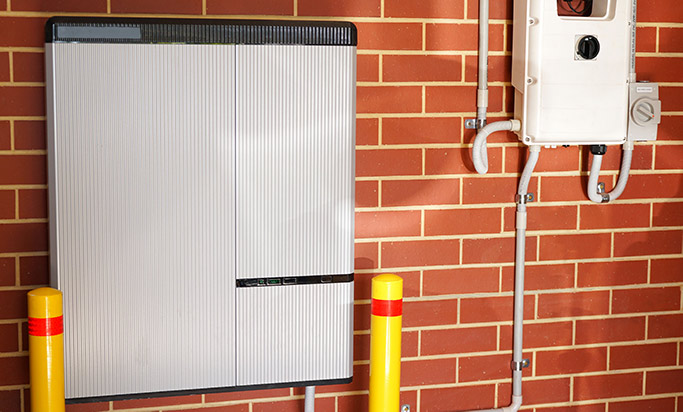
Lithium ion home battery and solar inverter solar panel system for power storage installed in home garage.
These systems are common in situations where the power can, under no circumstances, go out, such as commercial environments or if you have medical devices in your home.
If you live in a rural area or desire complete energy autonomy without dealing with an electric company, this is your best option. Your photovoltaic system takes in sunlight and stores power in your battery bank, just like the on-grid system with batteries operates.
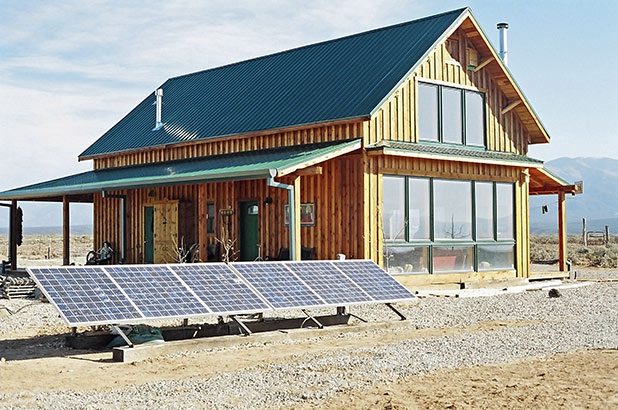
An off-the-grid house using a solar panel energy system.
The clear disadvantage here is that if something happens to your battery or your panels, you don’t have the grid to provide energy in the interim.
There are competing technologies on the market right now that have their own advantages and disadvantages. You’ll want to work with your installer on which type of panel best suits your unique conditions & needs.
These are probably the panels you’re most familiar with (they may be on the roof across the street from you right now)! PV panels utilize the photovoltaic effect, which is the process that creates voltage or electric current by exposure to light. The reason they are so popular is that they are very efficient producers when limited space is a factor. The crystalline silicon design can usually be up to 20% efficient (that’s good!).
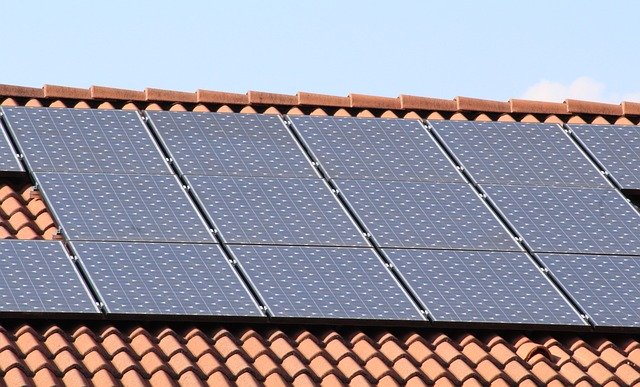
Photovoltaic (PV) Solar Panels installed on a residential home.
Thin-film panels are often used in situations where the more rigid photovoltaic panels would not be practical. The thin-film panels are very dynamic for different mounting situations but offer very little by the way of energy efficiency. A larger number of them are needed to get the job done.
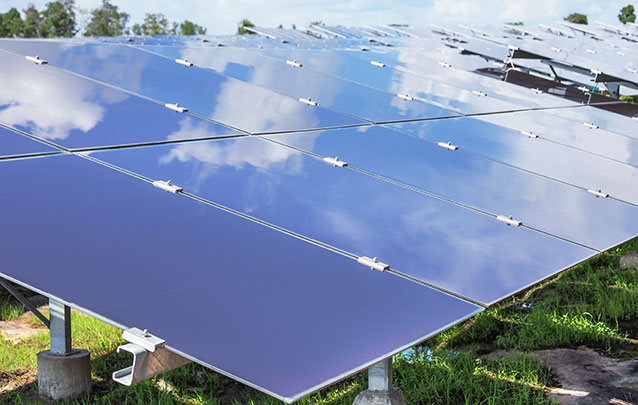
Thin Film Solar Panels used in a commercial application.
Note: Harmon Solar does not install thin-film panels due to the rarity in which they are required over PV panels.
Do you have a large sunny backyard and a shady roof? These are the things to consider when mounting systems.
During the solar panel installation process, you will need to decide the best place with the most sun that is also the most practical for your home or building.
Your technician first places the mounts 4 feet apart on the roof. Holes will be drilled to secure the mounts with steel bolts. The panels will be placed on the mounts and then are connected to your home.
It is advised that this type of mount has a good orientation to the sun year-round and generally works best on north/south facing roofs as they will get sun most of the day. With an east/west facing roof, the sun will only shine on your panels during the morning or afternoon.
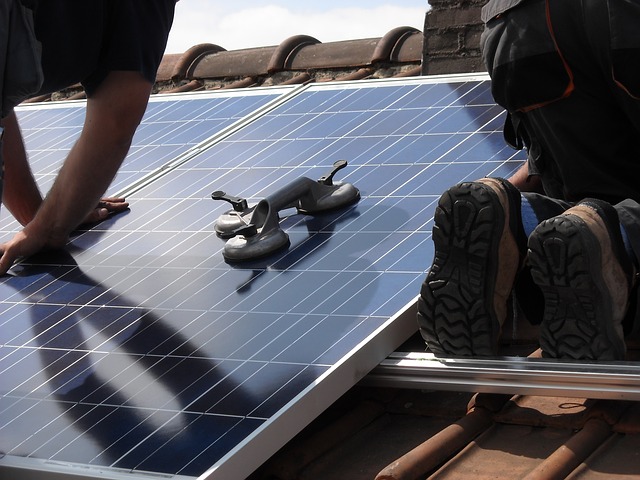
Solar Panels mounted on a residential rooftop.
If your roof type is not conducive to drilling or able to hold the weight of the system, this might be the route to go for you. If a sunny space is readily available, ground mounting presents some advantages in that some systems can reorient themselves to move with the sun.
The disadvantages of mounting in your backyard as opposed to your roof are easily summed up: using up precious space in your backyard instead of your roof.
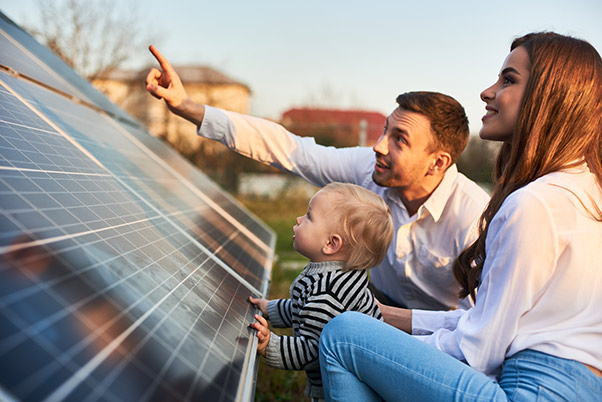
Solar Panels ground mounted in a family’s backyard.
Note: Harmon Solar does not install ground-mounted systems on residential properties.
At the end of the day, your conditions are going to be unique so it is best to weigh your options and your requirements as to which route to solar energy you pursue. Whether you have a home or a business, solar is readily available and easy to have installed once you’ve chosen a solar installer. You’ll be saving money on your electric bill in no time!
Call the professionals at Harmon Solar at 800-281-3189 to discuss your options and see what would work best for you and your family or your business.